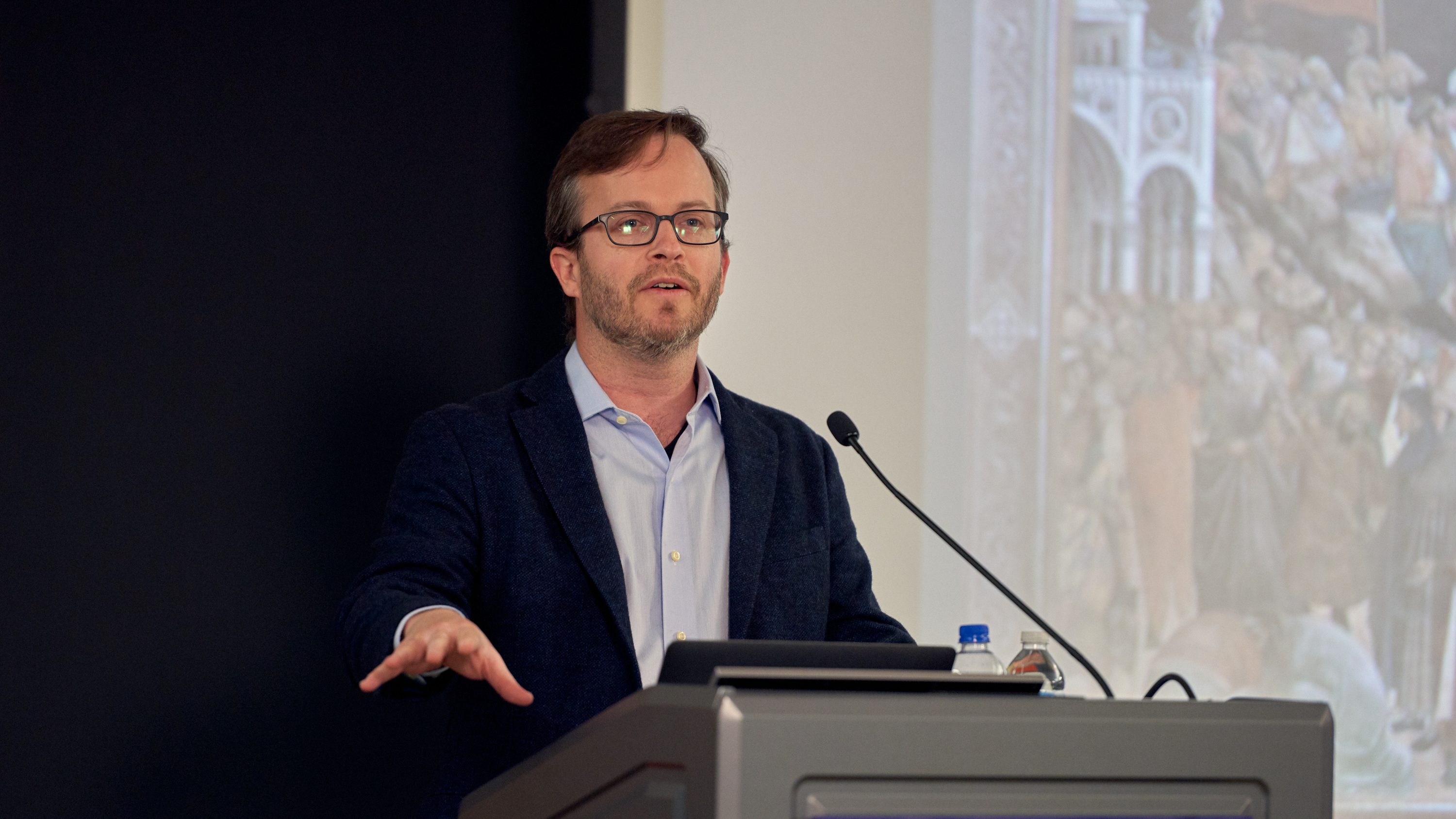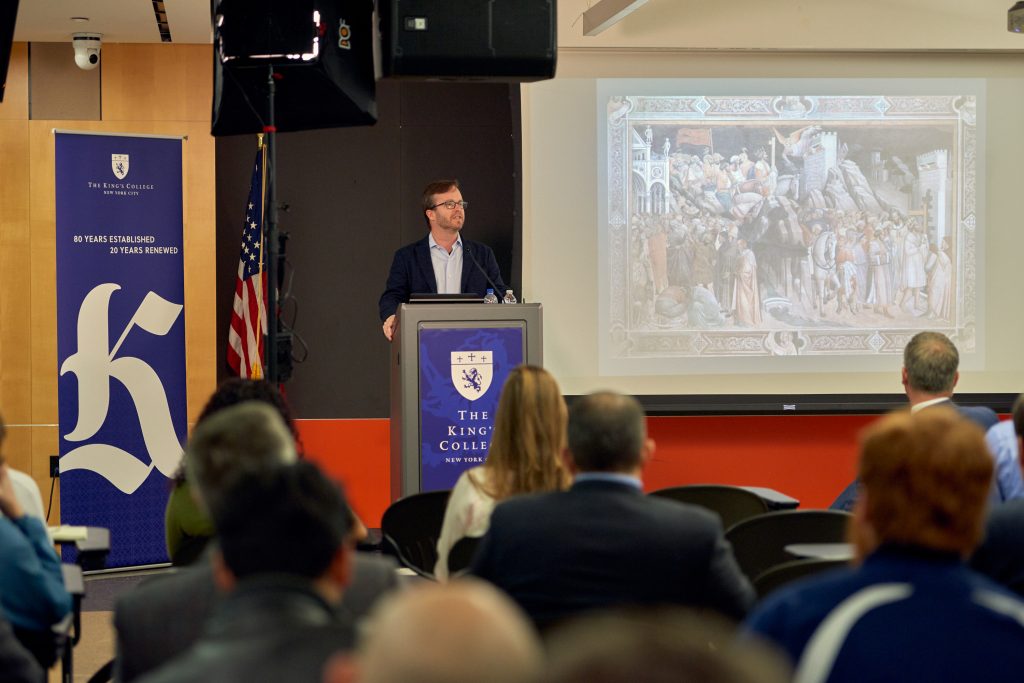Timothy Dalrymple on the Witness of the Church and the Technology of God
Dr. Dalrymple’s lecture focused on the story-telling nature of humans and the significance of technology for the spread of stories.

On October 29, Dr. Timothy Dalrymple, President and CEO of Christianity Today, spoke at King’s as part of the President’s Lecture Series. Dalrymple’s lecture, “The Witness of the Church and the Technology of God,” focused on the story-telling nature of humans and the significance of technology for the spread of stories.
President Tim Gibson said, “Dr. Dalrymple’s example is inspiring. Wonderfully accomplished in academia and business, he is now providing vision and leadership to a flagship Christian publication. His excellent address prompted us in the audience to consider our rich Christian heritage of adopting new technology to spread truth. We are truly blessed here at King’s with an abundance of distinguished visitors, and Dalrymple is no exception.”
Dalrymple defined technology as “a tool or technique that increases our power to manipulate our environment.” This means that both computers and pencils qualify. Dalrymple admitted the possibility of technology having a darker side, citing how one of the first technologies, the creation of animal clothing for Adam and Eve, required the sacrifice of animals. Today’s technologies can offer unwelcome distractions or even enable human trafficking. However, he offered an invigorating perspective on the hopeful future of Christian technology.
One example of a technology Dalrymple offered was the illuminated prayer book of Charles V, the Holy Roman Emperor during the Reformation. This book featured the story of the Byzantine Emperor Heraclius returning the true cross of Christ to Jerusalem. As the story goes, when Heraclius approaches the holy city in a grand procession, the gate is blocked. An angel tells him that if he is entering the holy city with the cross of Jesus, he has to enter in the way Jesus entered. Only after Heraclitus steps down from his high horse, strips off his regalia, and humbly carries the cross does the gate miraculously open. The prayer book containing this story, Dalrymple said, was a form of technology that enabled young monarchs to learn the way of a Christian king.

Dalrymple referenced other technologies like the creation of codex in response to the inefficiencies of scrolls. The codex was an early book, a bound collection of papers which could be flipped rather than unraveled. This technology made study and the circulation of stories more efficient. Other technologies of which Christians have been “early adopters” include the radio and the printing press. Contemporary Christians use technologies like comics, film, and the YouVersion Bible app to share truth.
Technologies that proliferate stories are important because humans are story-driven, Dalrymple explained:
We are essentially story-telling creatures. Even at night in our sleep we are telling ourselves stories. And this tells us that we are fundamentally story-tellers who are made in the image of a story-teller. That God chose to use story, he didn’t deliver a systematic theology textbook. Now, there is theology and often quite rigorous theology within the Scripture but it often wrapped up in story. Stories change lives as well. They make sense of the lives we lead and they may call us to live lives we have not yet lived.
Tia McCord (Humanities ’20) said: “I thoroughly enjoyed Dalrymple’s emphasis on the importance of telling people’s stories. It is so important to include the aspect of humanity into the conversation of utilizing technology.”
In Q&A, Brent Buterbaugh (PPE ’22) asked how Christians can go about restoring their unfortunate reputation of producing second-class technology. To this, Dalrymple said, “I think we’ve lost our edge. . . These days, who is shaping our material culture, but also all aspects of our culture, more profoundly than Silicon Valley entrepreneurs? I don’t think anybody is.”
Christians, Dalrymple argued, have historically been on technology’s cutting edge. He shared how he has worked to utilize technology to increase the global capacity of Christianity Today. Dalrymple’s hope is that Christians will return to their former post as front-runners in technology and story-telling.
Patterson Tompkins (MCA ’20) said: “Dr. Dalrymple’s lecture inspired me to expand my imagination for culture-creation and innovation as he cited examples of how Christians have been on the cutting edge of technology to fulfill the Creation Mandate and spread the Gospel. It was also inspiring to hear how he sees Christianity Today’s vision and goals fitting into that long tradition.”




